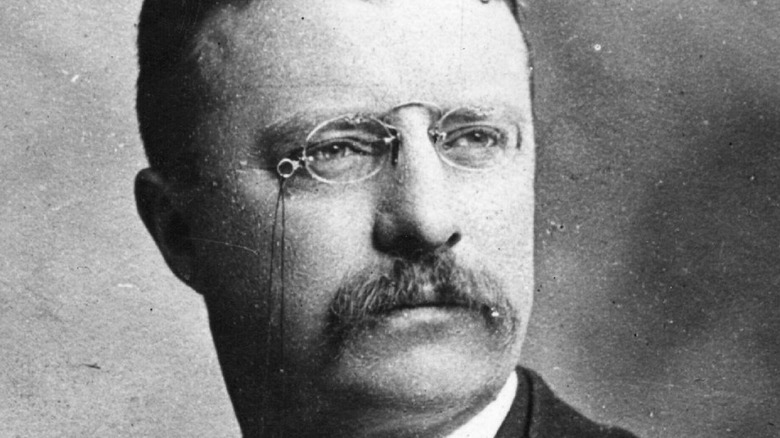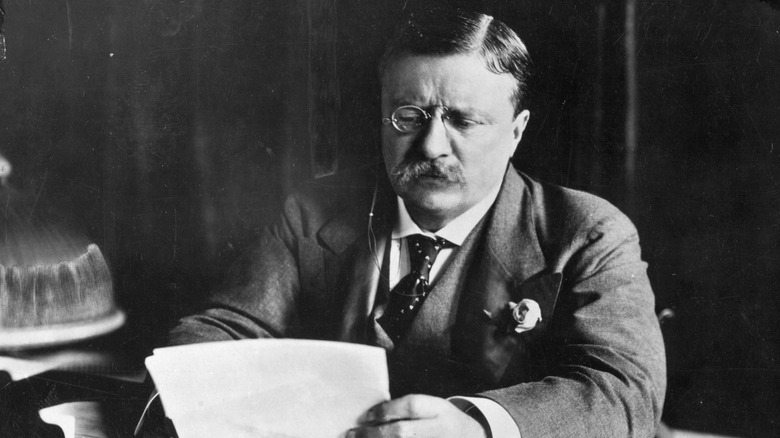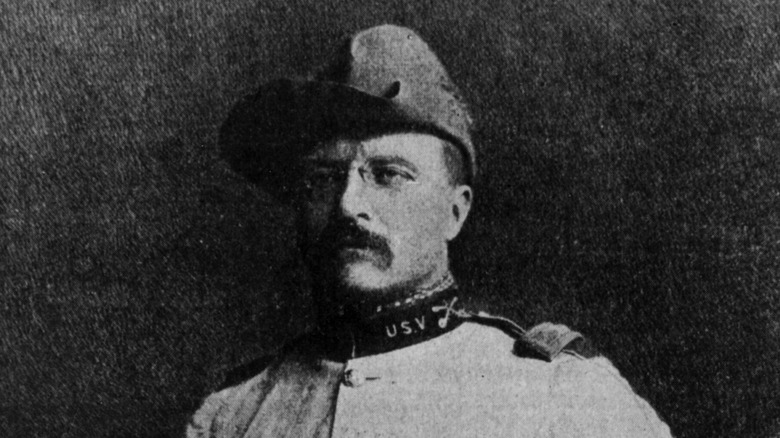Why Conservation And Wildlife Was So Important To Teddy Roosevelt
Theodore Roosevelt — better known as Teddy Roosevelt — was president during an era of change for the United States. He urged more foreign relations, which included building the Panama Canal and intervening in Latin America and the Russo-Japanese War. However, the biggest aspects of his legacy are his conservation efforts. How did a New York City-born avid hunter come to hold conservation and wildlife in such high regard?
Roosevelt suffered from severe asthma as a child. Remedies at the time proved to be ineffective. His parents hoped that spending time outdoors would help ease his breathing issues. He greatly admired his father, who took him on carriage rides in the city to get fresh air. When his ailments confined him to the home, Roosevelt read books by Charles Darwin and took taxidermy lessons. With encouragement from his father, he eventually gained the physical strength that he had lacked in his younger years. In his early adulthood, his asthma was manageable (per History).
Teddy Roosevelt valued civilized hunting
According to TIME, Teddy Roosevelt moved to the Badlands and became a rancher. There, he built upon his boyhood interest in wildlife, hunting a broad range of animals from birds to bears. After publishing his book "Hunting Trips of a Ranchman," he met with fellow writer and outdoorsman George Bird Grinnell. The two decided to found the Boone and Crockett Club in 1887 for men interested in hunting, but also wildlife conservation. He wanted to show how hunting could occur without "wasteful slaughter." However, wildlife populations began plummeting not long after the club was founded. Therefore, Roosevelt and George Bird Grinnell's focus leaned more heavily toward conservation. The values of the club's "civilized hunting" theme became "scientific game management and conservation."
Encouraged to enjoy the outdoors from such a young age, Roosevelt was troubled by the fragility of wildlife and natural spaces. He allotted over 200 million acres of land to preserve natural spaces and helped establish more national parks. This gave him the title of the "conservation president" (per History).
Teddy Roosevelt established the National Forest Service
Teddy Roosevelt created the National Forest Service and laid the groundwork for the future National Parks Service during his presidency. Though he granted protections to millions of acres of land for forests, wildlife, and national parks, some of this land came at the expense of Native Americans. Indigenous people already occupied some of the territory in question. To them, these lands were not "wilderness," but home and heritage. Sending the Native Americans to reservations removed them from land they considered sacred (per History).
While Roosevelt's heart was in the right place and he believed it wise to preserve nature, he disregarded the needs and values of indigenous people. This proves that when significant decisions are made, all those affected by such decisions need a seat at the table for the discussions. As the world sees wildlife and natural spaces continue to decline, we should keep Roosevelt's high regard for conservation in mind, but also bring in different perspectives and be mindful of who our conservation decisions might impact.


